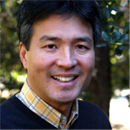Who We Are

Milton Chen
2013 IFTF Fellow
Education Innovator and Director Emeritus at Edutopia
Dr. Milton Chen is Senior Fellow and Executive Director, emeritus, at The George Lucas Educational Foundation (GLEF), a non-profit operating foundation in the San Francisco Bay Area that utilizes its multimedia website Edutopia.org and documentary films to communicate a new vision for 21st century schools. He served as executive director of GLEF for 12 years from 1998 to 2010. During his tenure, Edutopia.org became known as a destination site for educators and others interested in educational innovation and won numerous honors, including the 2009 Webby People’s Voice Award for best education website. Site traffic has grown to more than 700,000 unique visits per month.
Milton has also been the Founding Director of the KQED Center for Education (PBS) in San Francisco; Director of Research at Sesame Workshop in New York, helping develop Sesame Street, The Electric Company, and 3-2-1 Contact; and Assistant Professor at the Harvard Graduate School of Education. He currently serves as Chairman of the Panasonic Foundation in New Jersey, which supports superintendent leadership and district improvement, and the Games and Learning Publishing Council at the Joan Cooney Center at Sesame Workshop. He is also a member of advisory boards for the National Park Service and the Fred Rogers Center for Early Learning and Children’s Media at St. Vincent College. His 2010 book, Education Nation: Six Leading Edges of Innovation in our Schools, was selected as one of the 10 best education books of the year by the American School Board Journal.
Milton lives in San Francisco with his wife, Dr. Ruth Cox, Faculty Liaison for Academic Technology at San Francisco State University. Their daughter, Maggie, is a 3rd-year medical student at UCLA. He enjoys running, golf, yoga, and tennis, but fears he is destined to be mediocre at all of them. Perhaps most importantly, on his 50th birthday, Dr. Chen was named a Jedi Master by George Lucas!
Fellowship Project:
Develop “The Future of Learning and the Power of You” project
Milton will be exploring and writing blogposts about how rapid change is now, finally, confronting the world of schools and the learning of children, as it has transformed the worlds of business, manufacturing, entertainment, health care, and every other sector of society. Learning can now occur during school time but can also utilize the greater amount of time outside of school—in the home and the variety of "informal" learning settings, such as youth clubs, libraries, museums, parks, and other after-school and summer programs. These changes are giving students more freedom and flexibility in when, where, and how they learn, and also more responsibility for how their youthful years are spent.
Q&A with Milton Chen
Q: What is the most surprising story or turning point that led you to your current work and interests?
A: I was a college student with thoughts of working in civil rights law, perhaps with an educational emphasis, such as school desegregation. I was a 19-year-old research assistant at Harvard's Center for Law and Education, headed by a lawyer named Marian Wright Edelman, who left to move to DC and start the Children's Defense Fund. A researcher told me about a Harvard education professor, Gerald Lesser, who was an advisor to Sesame Street. I met Jerry, he became a mentor to me, and I went on to work for Sesame Workshop and teach the Harvard courses in educational media I had been a student in.
Q: Ten years ago, where did you expect you would be now?
A: I really didn't know. I've always found it hard to predict my own path ahead beyond three to five years. I was Executive Director at The George Lucas Educational Foundation and had been there five years and was busy building the organization. We were building Edutopia.org, considering starting an Edutopia magazine, and wondering when the time would arrive when users could view our documentaries on innovative schools over the Internet.
Q: What are some of the biggest challenges that your field will face in the future?
A: Giving students greater autonomy over their educational paths. Education can be viewed as an oligarchy, where a relatively small number of adults determine what a very large number of students do. From the point of view of many students, it’s an authoritarian regime.
Q: What do you wish you could "steal" from the future?
A: Self-driving cars! On 100 mpg. And algorithms to let you know when to depart for a trip down 101 to minimize being stuck in traffic.
Q: Which do you value most for the future: Happiness, resilience, or legacy?
A: Resilience is a really important quality to convey to our youth. It is a precondition for happiness and could lead to leaving a strong legacy.
Q: What cliché of the future would you most wish to retire?
A: “The future ain't what it used to be.” – Yogi Berra



